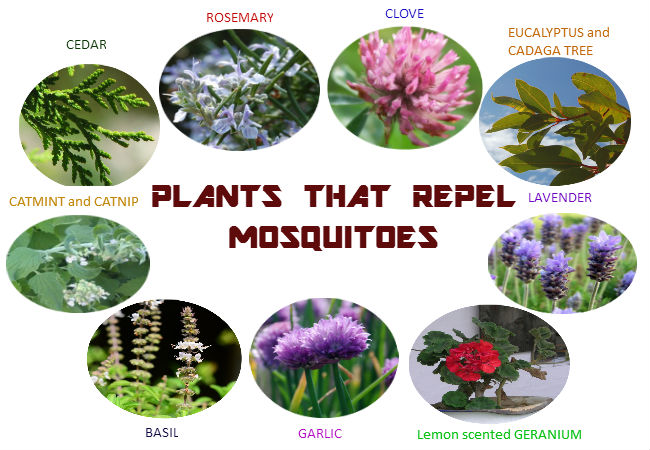Back yard mosquito control is of major importance in getting rid of troublesome mosquitoes. Blood-seeking females bite during their mating season for ovification. Most mosquito species live in forests, bushy areas and near natural water reservoirs. In fact, they may inhabit any place usable for breeding. Actually, warmth, source of water and shrubby areas are the major factors for successful growth in mosquito population. They can smell hosts two miles off and they can fly up to 100 km to find a source of blood. It is a great problem when mosquitoes are breeding in yards and attack homeowners outdoors. The only way to prevent bites and get rid of blood-sucking insects is to provide back yard mosquito control diy or by the help of pest control professionals.

What mosquito species can breed in a yard?
The most popular blood-sucking species in backyards are mosquitoes of genus Aedes and Culex. Aedes mosquitoes are vectors of Yellow fever, Dengue, Zika virus, Chikungunya, human lymphatic Filariasis, Japanese encephalitis. Culex mosquitoes transmit West Nile fever, avian malaria, western equine encephalitis, St Louis encephalitis, japanese encephalitis, filariasis.
Mosquitoes of Aedes have noticeable black and white markings on their body and legs. They are active in the late morning and in the early evening. Besides, some Aedes mosquito species lay eggs directly on soil where they remain unhatched, until flood or rain runoff occurs. Unlike mosquitoes of Anopheles, females of genera Aedes and Culex keep their bodies horizontal when feeding.
Mosquitoes of Anopheline genus transmit Malaria fever. In addition, they tend to sit with their heads low and their rear ends raised high when blood-sucking.
Mosquitoes of genera Aedes and Culex are able to oviposit and breed in hollows of tree trunks, used tyres, puddles, tin cans, bowls, garden buckets and watering-cans, leaky pipes and casks, old flower pots, roof gutters. In fact, any container, which accumulate water after rains and run-offs, is a nice breeding ground. Malaria mosquitoes can inhabit yards with large reservoirs with stagnant pure water, that are unshadowed by trees. During cold seasons, Culex and malaria adult females, Aedes eggs can hibernate. They hide or oviposit in substructures, basements, vegetable store cellars, outbuildings, farm-buildings, barns, hollows and excavations in tree trunks.
Back yard mosquito control methods
All species of mosquitoes Culicidae, that cause vector-borne diseases, pose a threat to human life and health. Effective treatment against blood-sucking insects is obligatory in areas of high mosquito risk. To prevent mosquitoes from breeding in yards and to control density of their population are the main targets for reducing blood-feeding females. The CDC has developed strategies for back yard mosquito control methods:
- through removal and modification of breeding sites
- through reducing contact between mosquitoes and people
- through biological mosquito control
- through creation of physical barriers
How to control mosquitoes’ breeding sites in yards and parks
Back yard mosquito control method through removal and modification of breeding places can be practised on your own:
Inspect your backyard regularly for removal of the possible mosquito breeding sites. Eliminate standing water outside home and in the basement.
Used tyres, tin cans, garden watering-cans, leaky buckets and old flower pots, that accumulate water after rains and run-offs, must be cleaned and/ or removed.
Any pools of excess water at the base of plants, in gutters or in drains should be eliminated or allowed to drain by clearing any clogged areas.
Bury damp piles of fallen leaves and garbage as mosquitoes are likely to congregate in them.
Inspect regularly and repair leaky pipes, septic tanks.
Empty and clean regularly containers that are intended to collect water, such as buckets, pots, drums and vessels.
Cover containers, which store water for household purposes, to prevent mosquitoes from laying eggs into.
In addition, you can call local authorities for marshland reclamation, if your backyard is close to wetlands. Instead, pest control specialists will perform larvicide and insecticide spray treatment over large basins of standing water in the areas of vector-disease infestation. These methods are aimed at elimination of blood-sucking female mosquitoes, eggs, pupae and larvae.
To do anti-mosquito fumigation by professional pest control services is the best way to wipe out mosquitos outdoors: in yards, forests and shrubby areas.
How to reduce contact between mosquitoes and people in backyards
In order to keep blood-sucking mosquitoes away from humans, it is necessary to protect homes from entering via installation of window screens and nets. When you are going to work, to have a rest or a picnic, to stay outdoors, the best method of back yard mosquito control is personal protective measures.
Homeowners should apply anti-mosquito products on exposed skin and top clothing. It is necessary to use spatial repellers, such as mosquito coils, apps and ultrasonic repellers, zappers and light killers to prevent bites when you are on patio or in the backyard. If you prefer sleeping outdoors, install bed nets and use spatial repellers as well.
Biological mosquito control in park, yard and garden
Biological insect control is the best way to repel mosquitoes in backyard. In fact, all you need is to grow plants that keep mosquitoes away. Thus, simply grow Garlic, geranium, basil, catmint and catnip, lavender, clove, mint, lemon grass, citronella grass in and around the yard. They will act as a biological barrier to repel blood-feeding insects and to control their infestation.

If you have a pond in your backyard and you don’t want to eliminate it, it is necessary to stock standing water with natural predators of mosquitoes. For example, a gambusia. Besides, it bears a name of a “mosquito fish” as well.
In addition, don’t get rid of frogs, lizards, birds and bats, as they feed on mosquitoes.
Physical barrier is an effective backyard mosquito control method
For repellent treatment of grassy yards, gulf courses, town parks, athletic fields and tennis lawns, apply mosquito barriers with non-organic and organic ingredients. In practice, the most popular and effective products to kill mosquitoes on contact and to prevent them from entering homes are:
Permethrin in “Mosquito and Gnat Barrier”.
Essential oils of garlic in “Mosquito Barrier“.
Soyabean oil in “PLP Natural Products“.
Citronella oil in garden formulation and lavender with geranium in park formulation of “Bugbouncer“.
Blend “TerraShield“.
In addition, you may mix natural mosquito barrier products with canola oil and water to coat standing water. A thin film of essential oil kills the larvae that develop in the water.
Barrier anti-mosquito spray exterminates and repels blood-sucking insects for up to a month. Thus, apply insecticides outside to treat lawns, shrubby areas and trees surrounding houses. Moreover, treat surfaces around light fixtures on porches or other places of the patio, where mosquitoes may land or congregate.
i WOULD LIKE A RECEIPE FOR SPRAYING PLANTS .I HAVE ALSO A DECK. iS THERE SOMETHING THAT i COULD SPRAY ON THE WOOD THAT WOULD DETER?? please email my answer